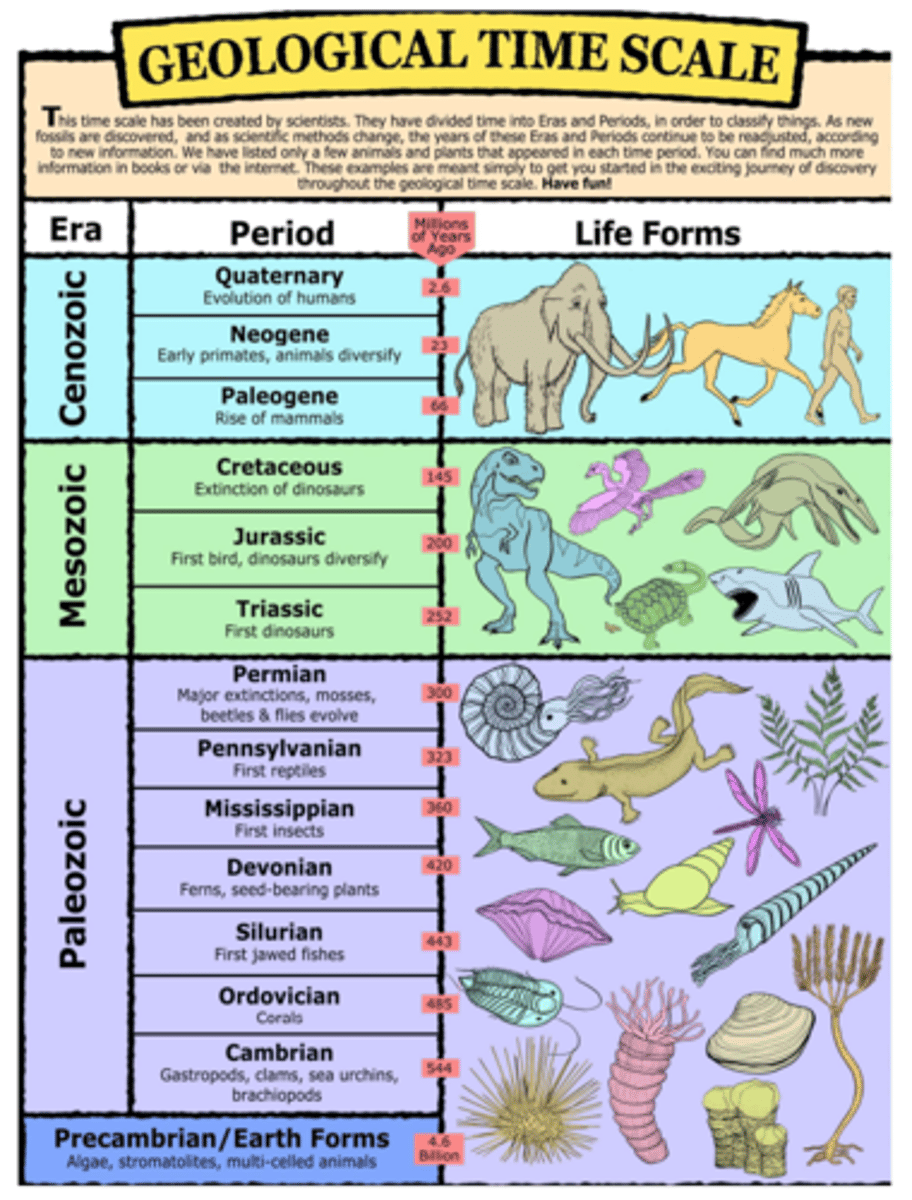Mineral Identification
1/44
Earn XP
Description and Tags
Name | Mastery | Learn | Test | Matching | Spaced |
|---|
No study sessions yet.
45 Terms
Pyrite
Metallic Luster. 6.5-6.0 hardness. Greenish-black streak. 5 specific gravity. Brass yellow/brown, brittle, no cleavage, cubic crystals. "Fools gold"
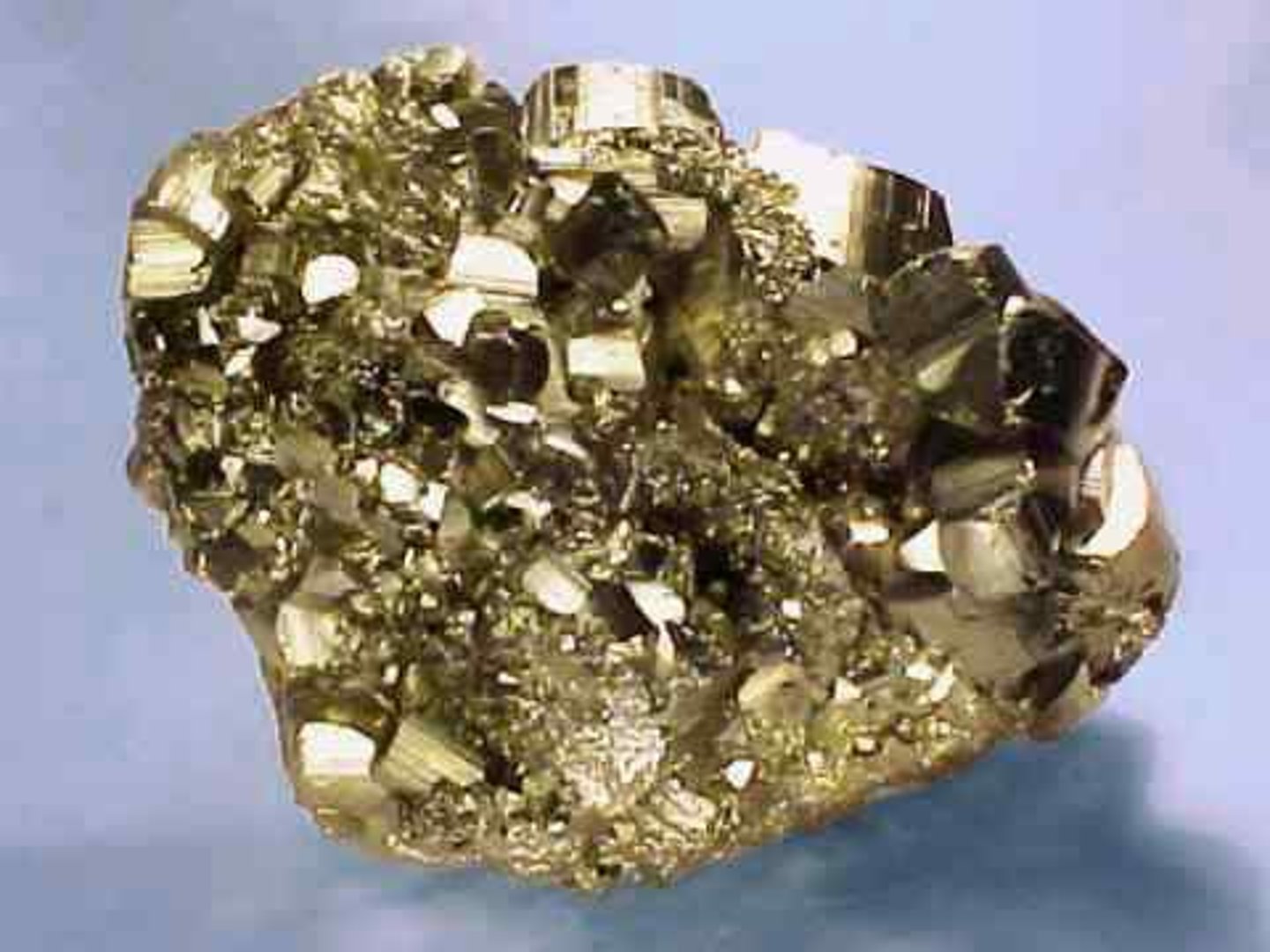
Magnetite
Metallic Luster. 6.0 harness. Dark grey streak. 5.2 specific gravity. Dark grey to black, no obvious cleavage. MAGNETIC!!
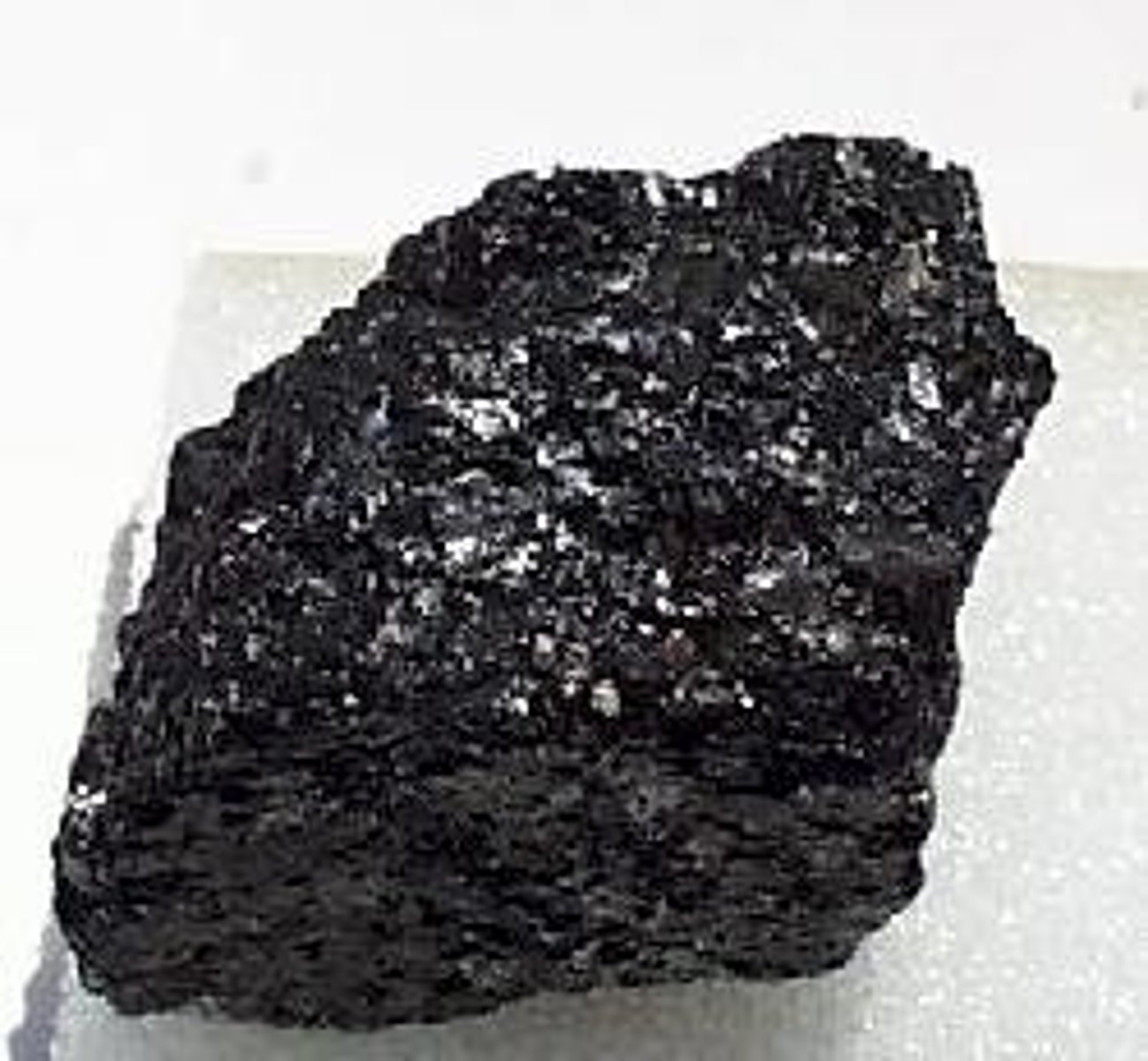
Hematite
Metallic Luster. 6.5-5.0 hardness. Red-Brown streak. 5.3 specific gravity. Silver-grey color, may have tiny glittery flakes, may tarnish red.
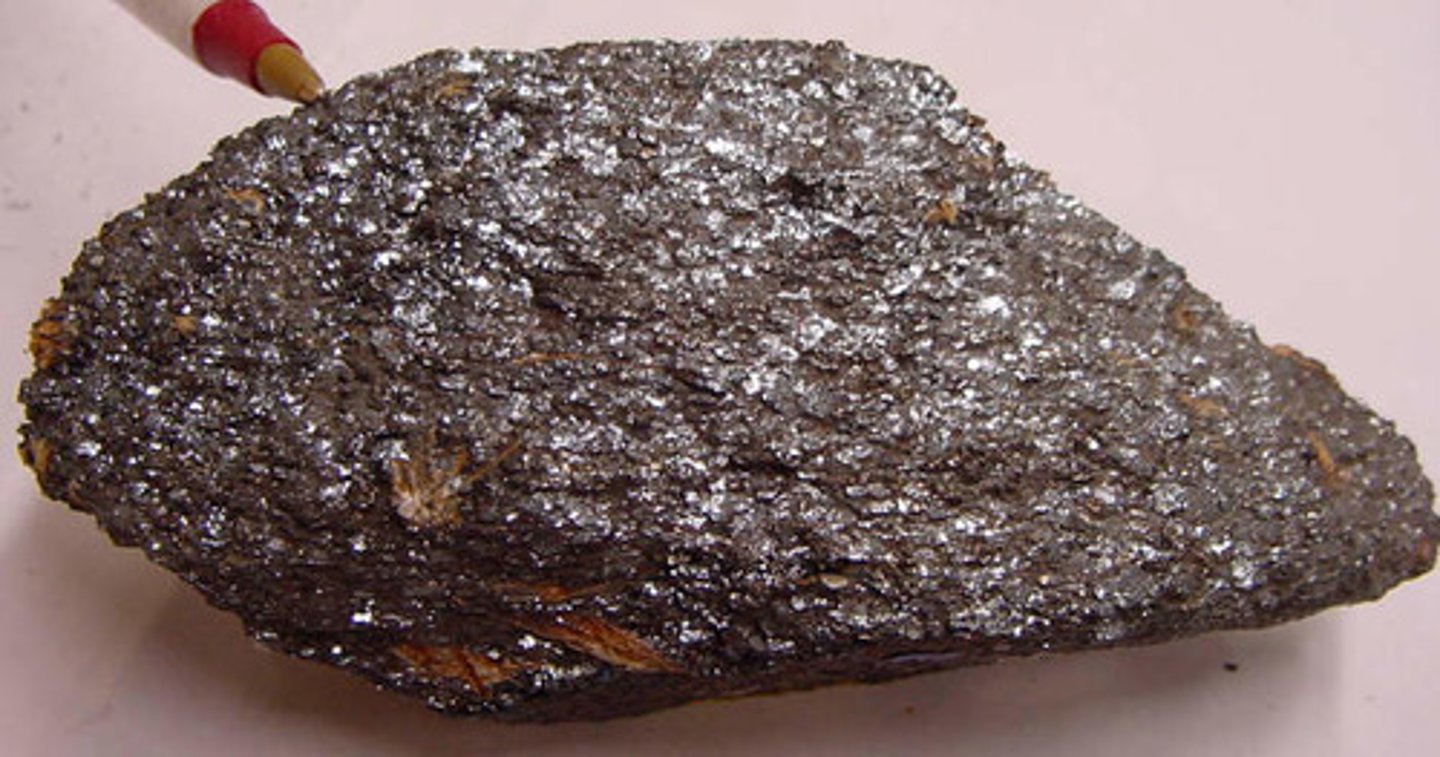
Goethite
Metallic Luster. 6.5-5.0 hardness. Yellow-Brown streak. 4.4 specific density. Yellow-brown to black color, in radiating masses.
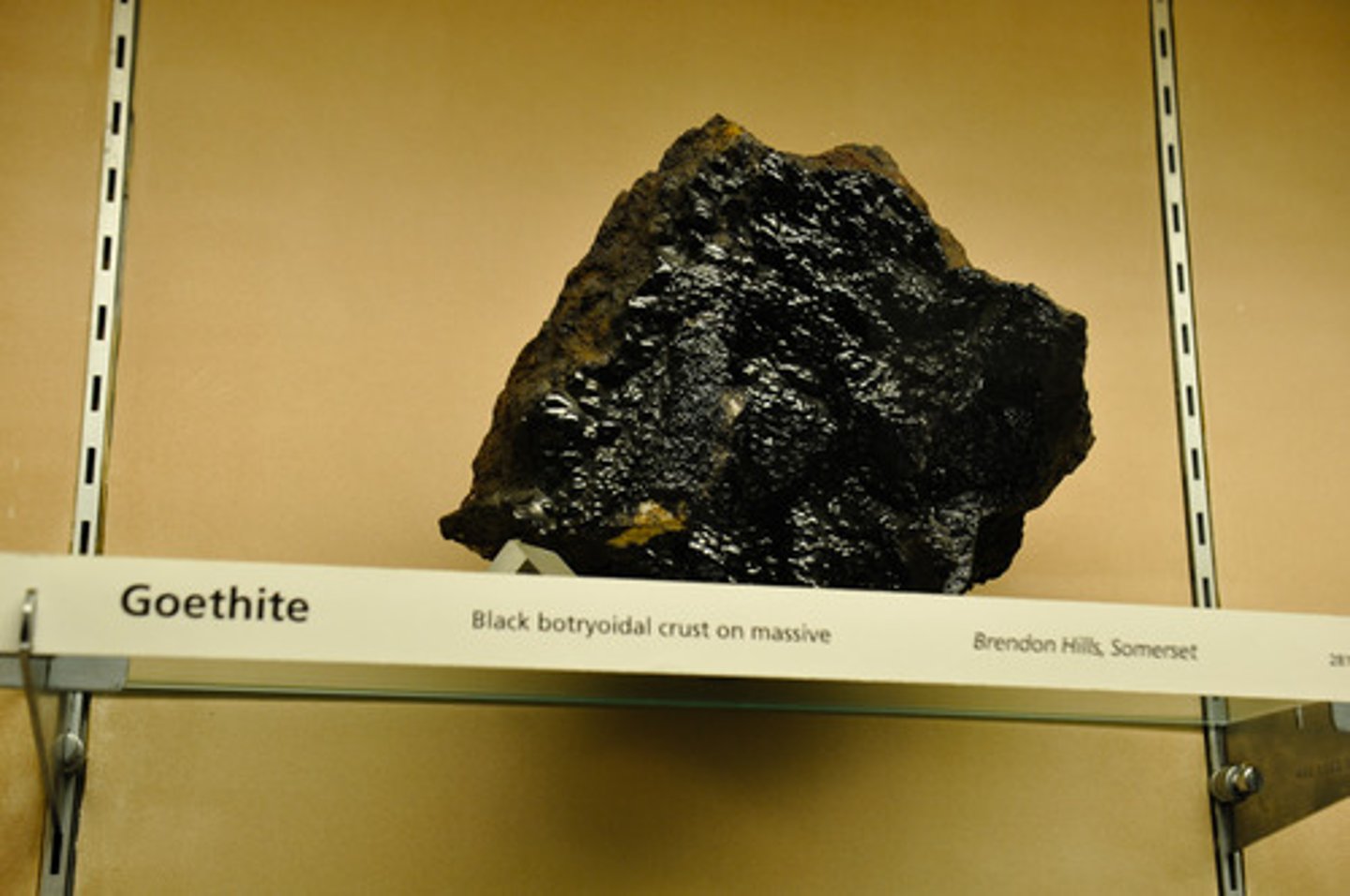
Garnet
Non Metallic Luster. 7.0 hardness. No streak. 4 S.G. Dark red brown to pink, yellow green or black coloring. No cleavage but may show parting; transparent to translucent; commonly forms dodecahedra.
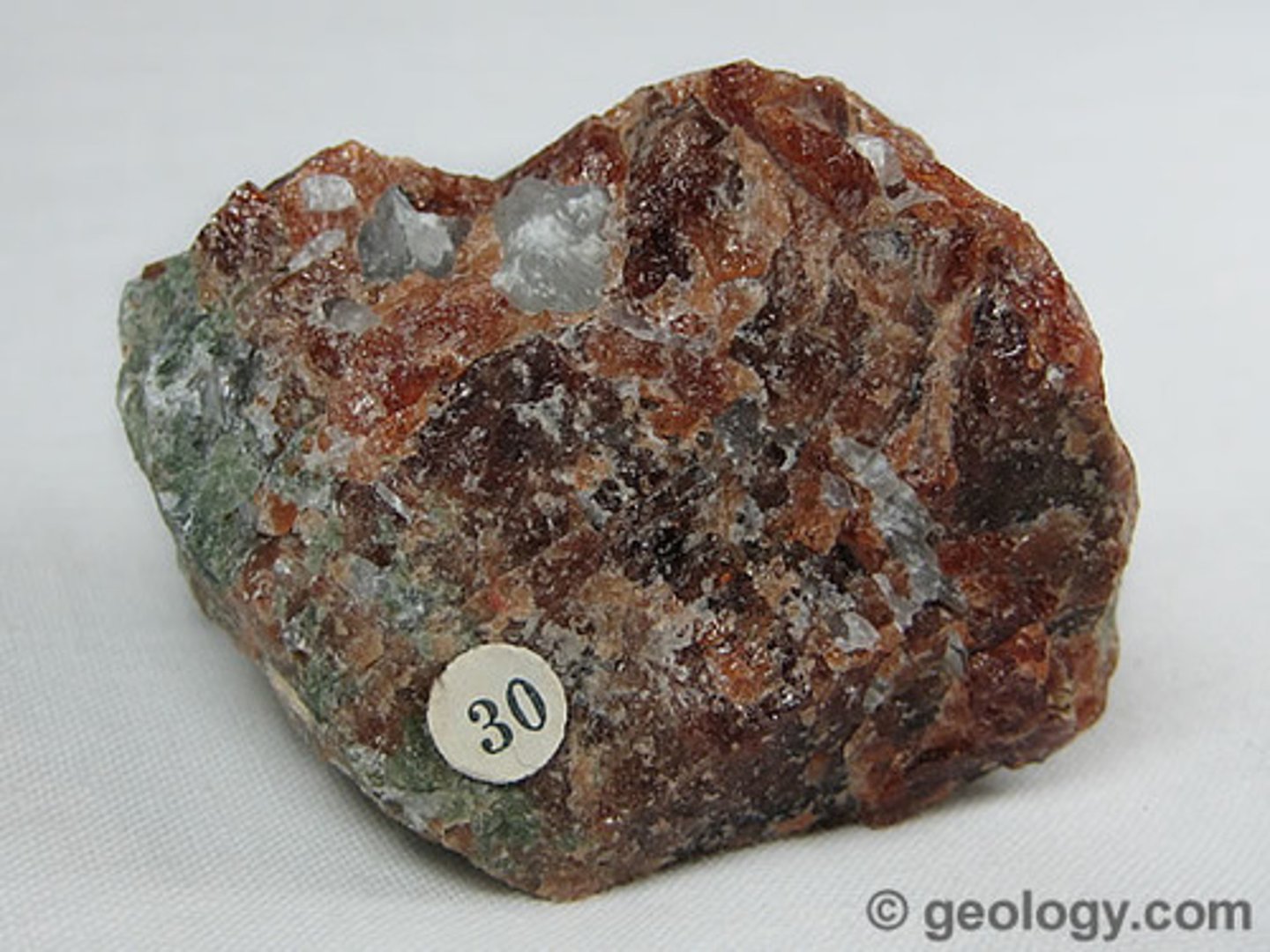
Olivine
Non Metallic Luster. 7.0 hardness. No streak. 3.2-3.5 SG. Yellow to green color. No cleavage, conchoidal fracture, often granular masses.
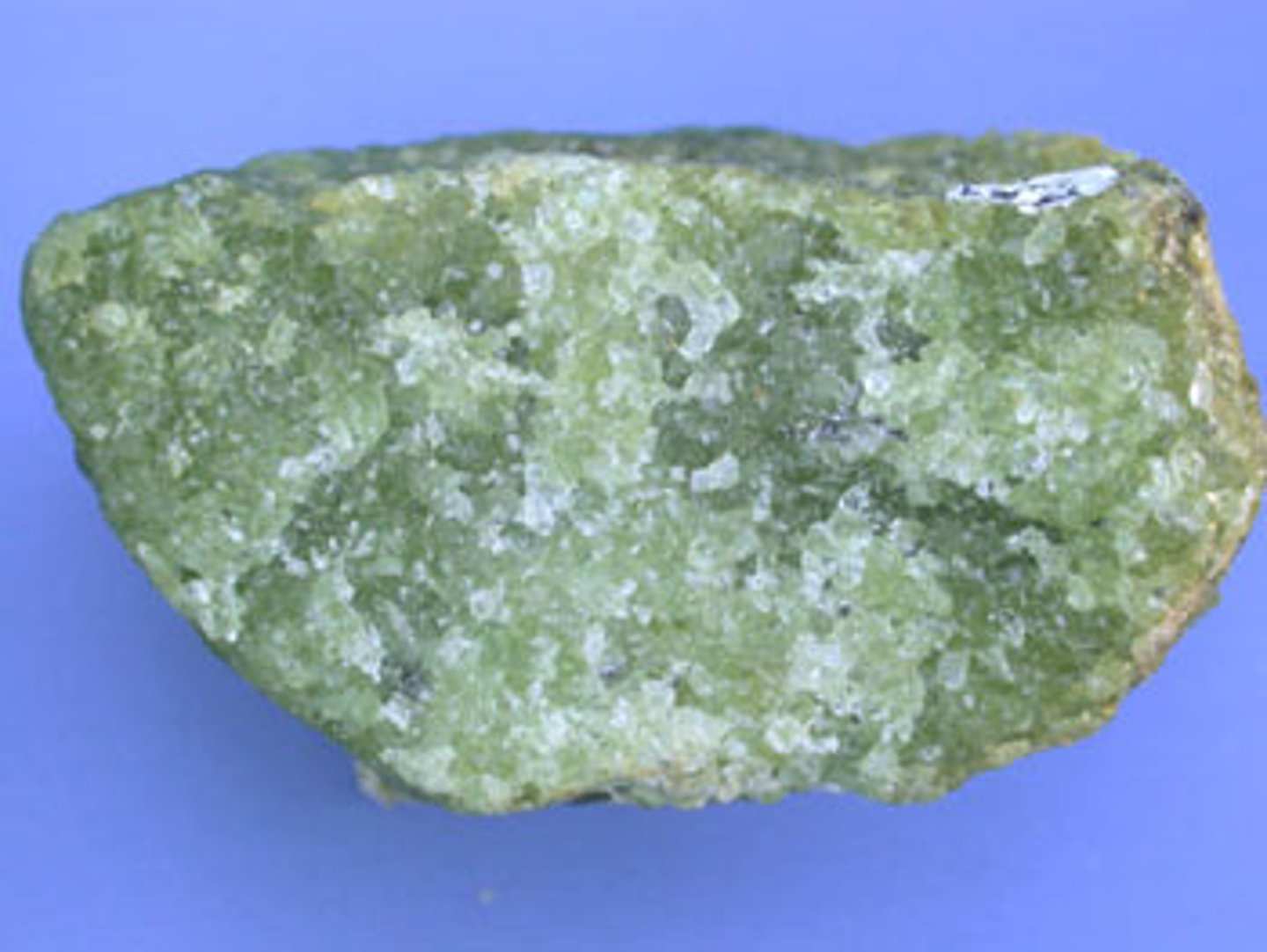
Quartz
Non Metallic Luster. 7.0 hardness. No streak. 2.7 SG. Colorless to light dark colors, transparent to translucent, greasy luster, no cleavage, conchoidal fracture, may form hexagonal prisms.
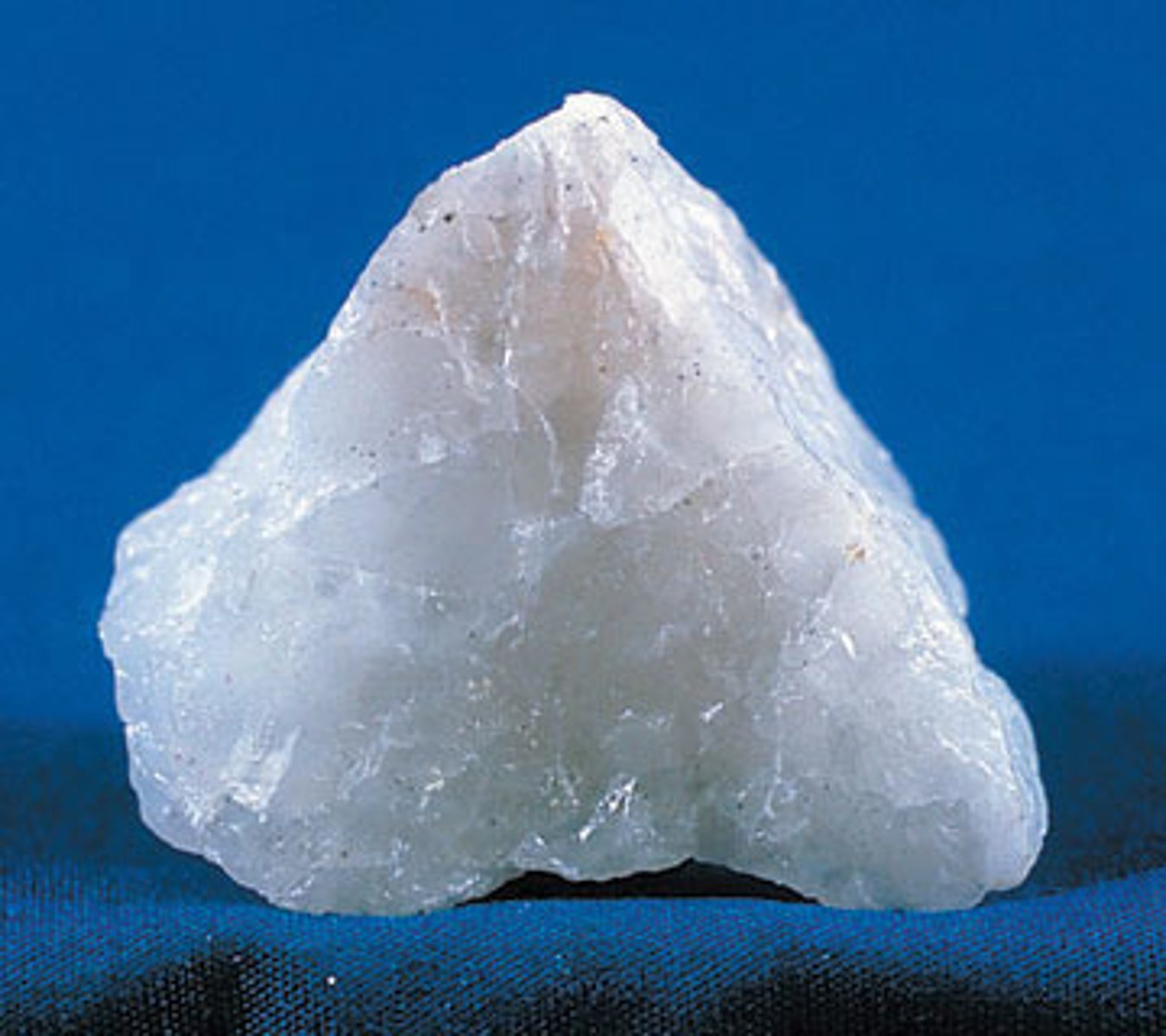
Potassium Feldspar
Non Metallic Luster. 6.0 hardness. White streak. 2.6 SG. White, pink/orange, green colors, too cleavages at ~90. may show subparallel exsolution lamellae.
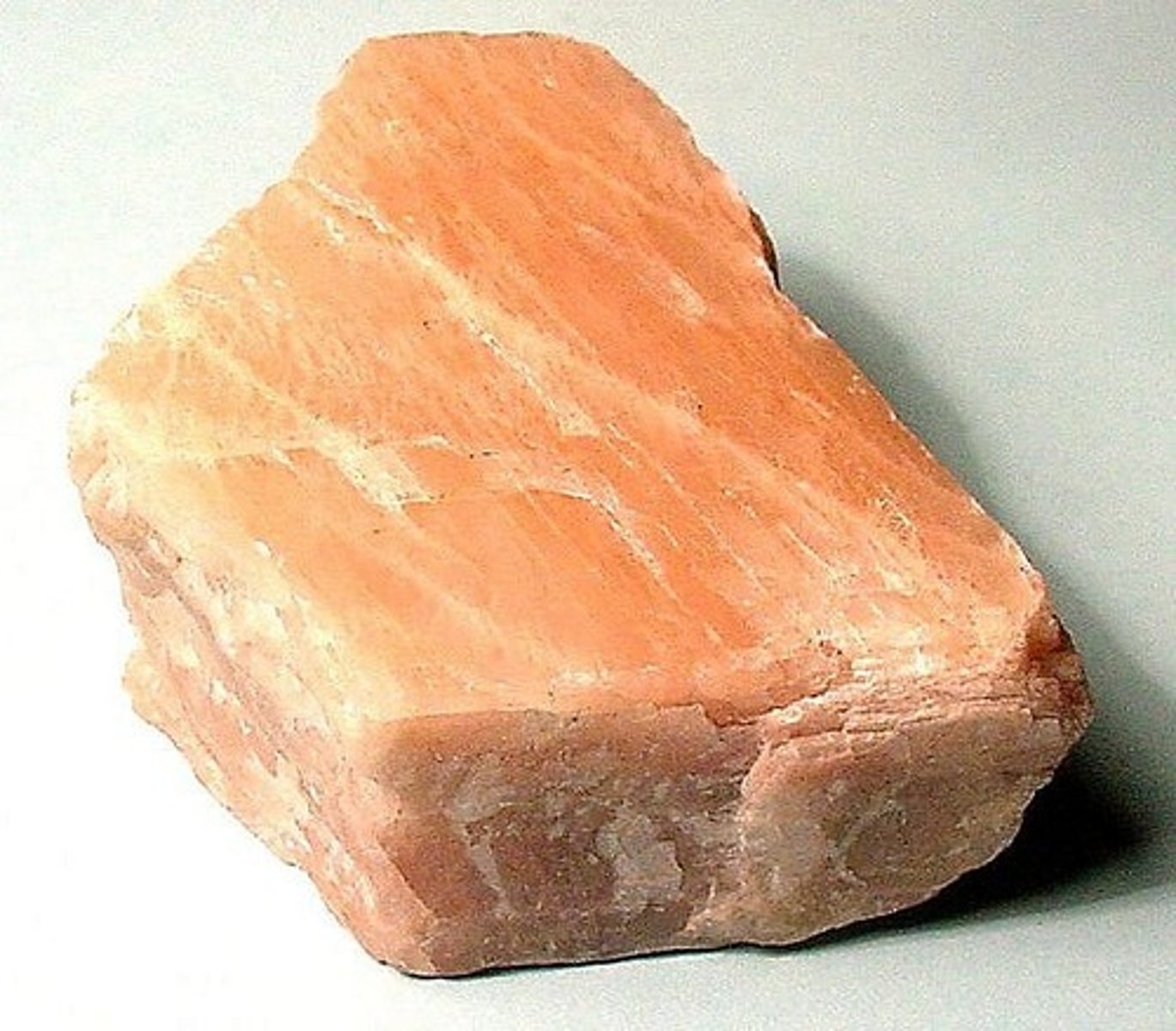
Plagioclase Feldspar
Non Metallic Luster. 6.0 harness. White streak. 2.7 SG. White to dark grey color, striations on some cleavage planes; two cleavage planes at ~90, rare blue iridescence.
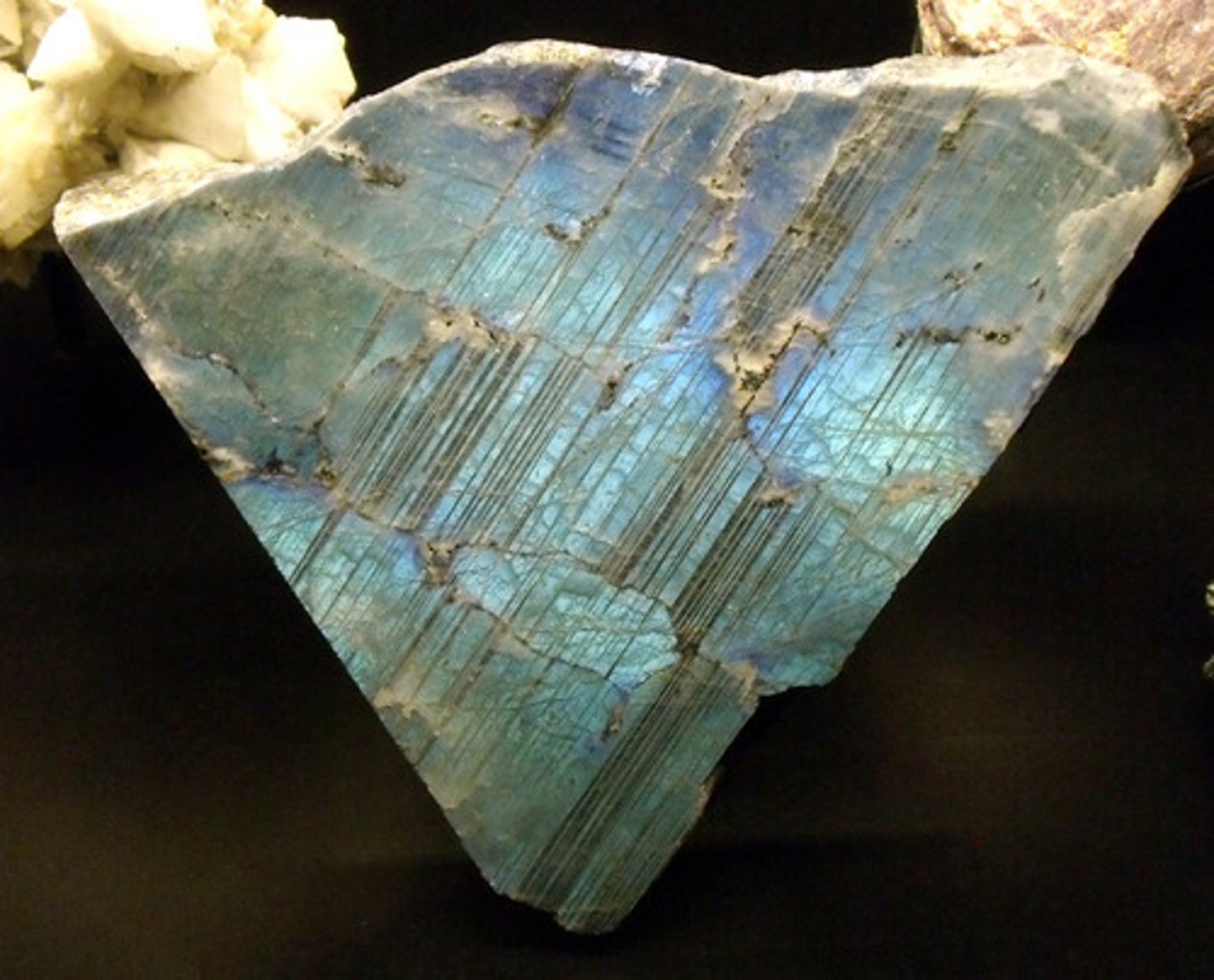
Augite (Pyroxene)
Non Metallic Luster. 6.0-5.5 harness. White to pale green streak. 3.2-3.4 SG. Green to black color, dull, stout crystals; two cleavage directions that intersect at ~87 and 93.
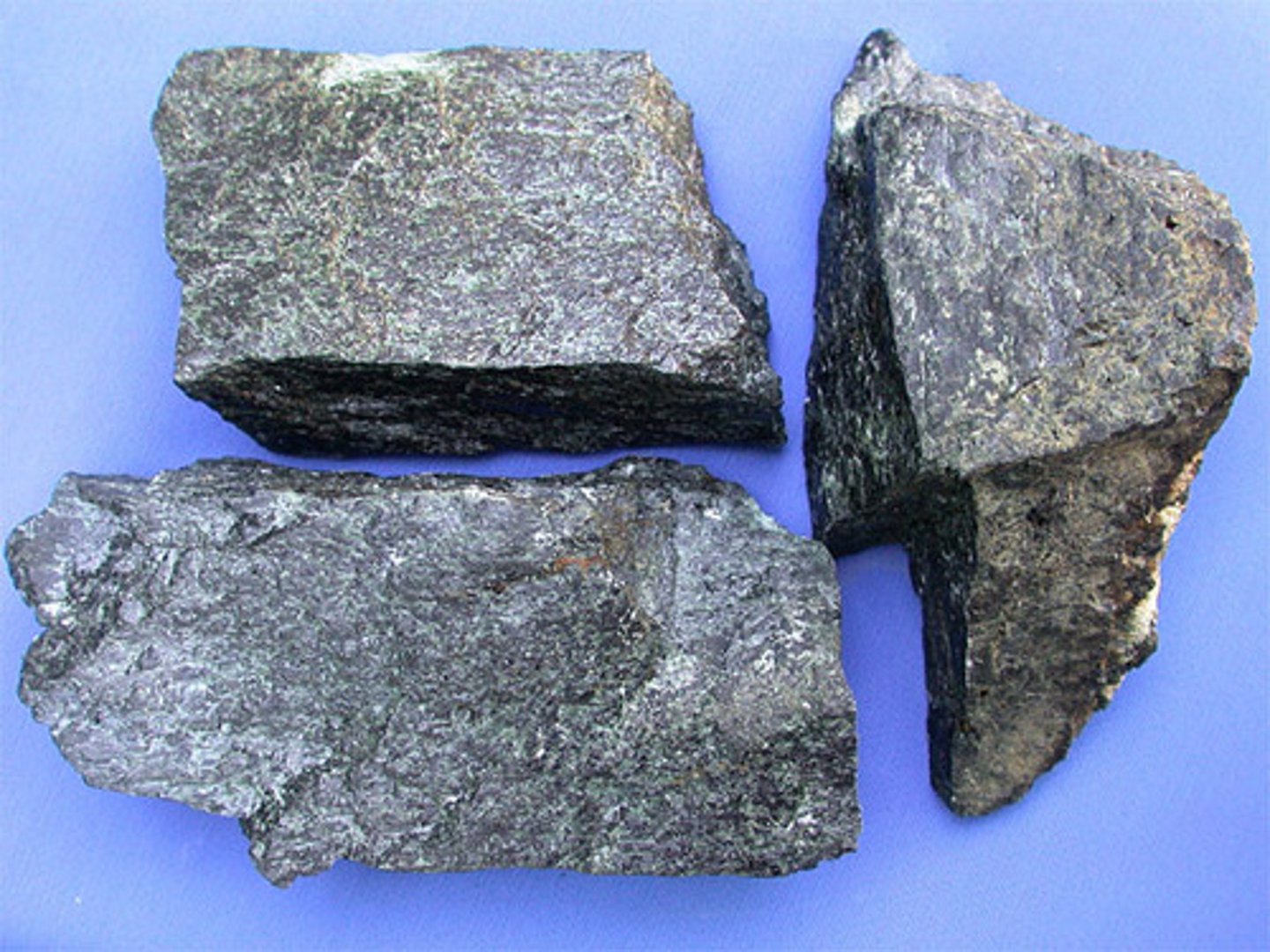
Hornblende (Amphibole)
Non Metallic Luster. 5.5 hardness. White to pale green streak. 3.3 SG. Green to black color, opaque, two cleavage directions at 56 and 124. Slender crystals, may be splintery.
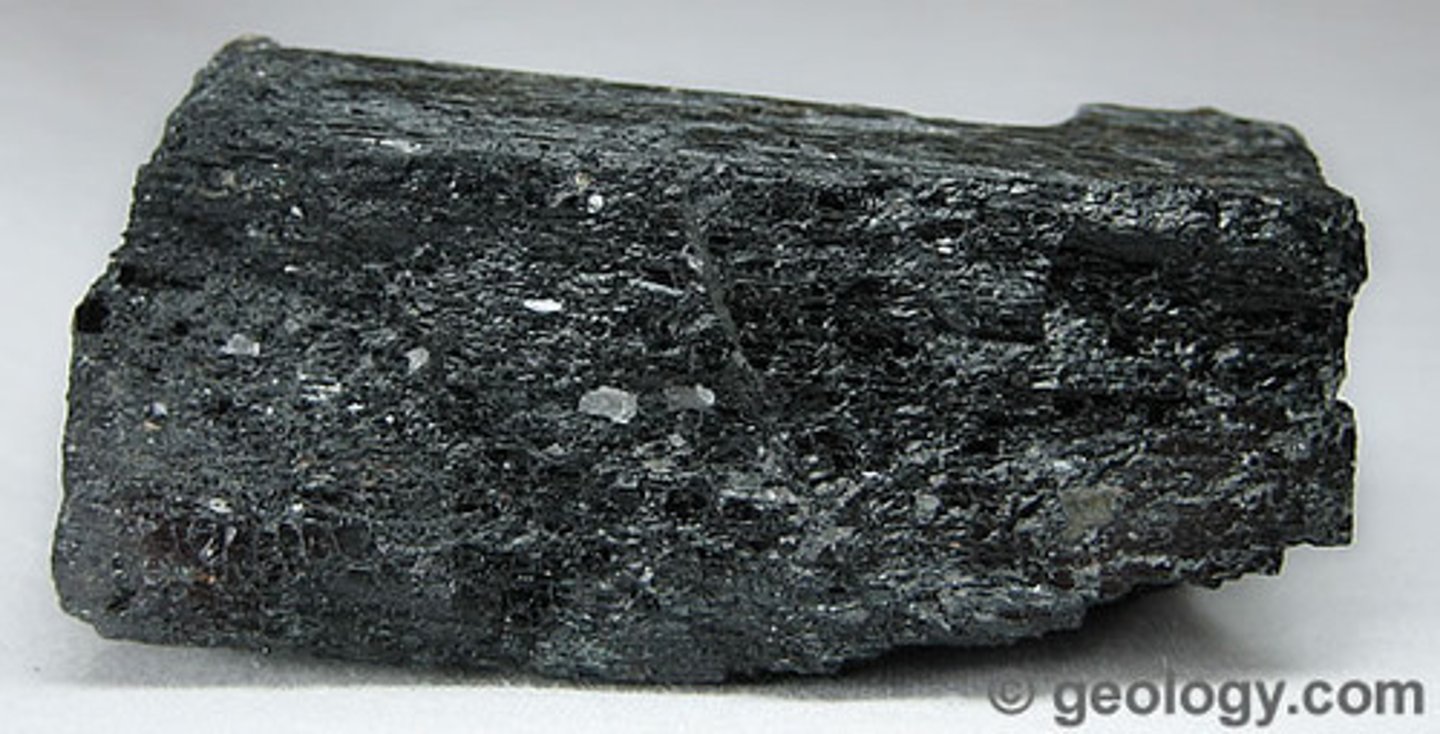
Hematite
Non Metallic Luster. 5.5 hardness. Red-brown streak. 5.2 SG. Red to brown color, massive, opaque, earthy luster.
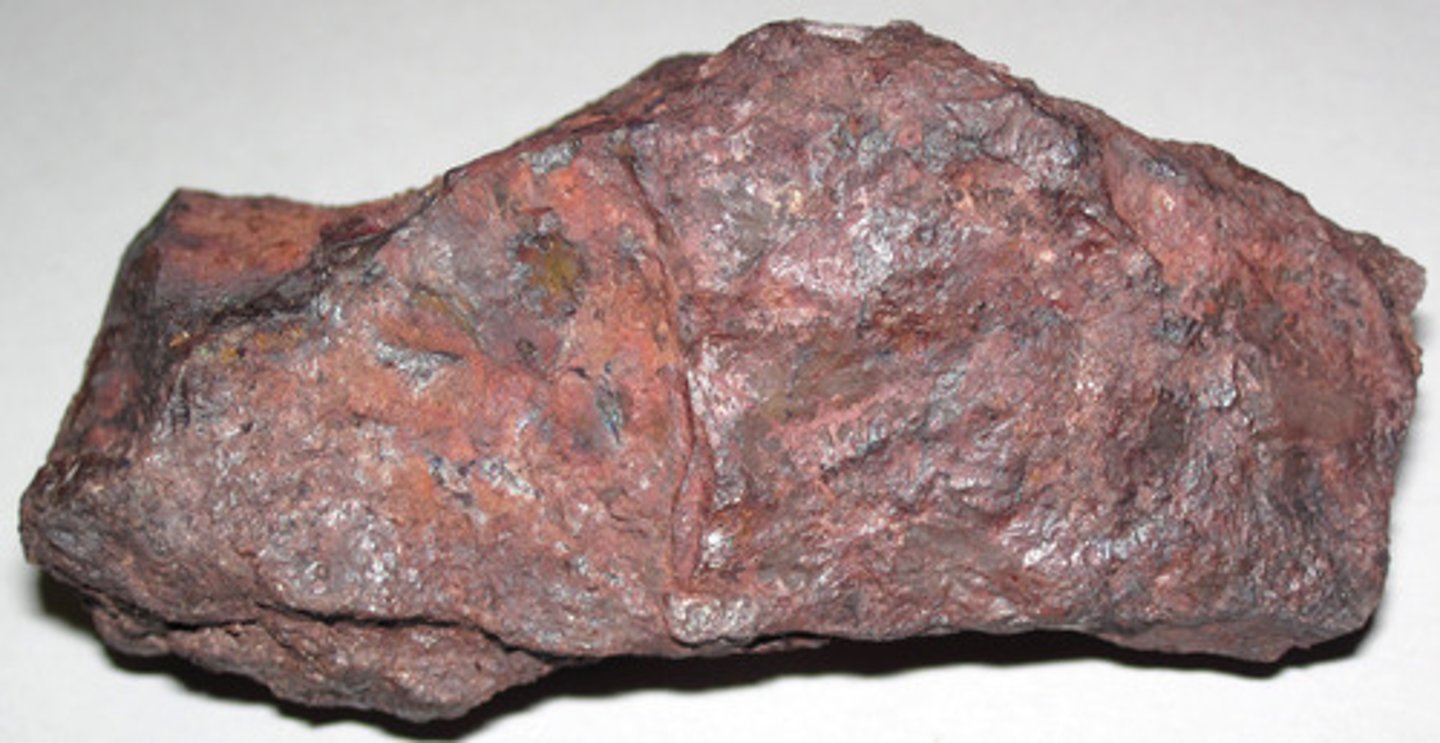
Goethite ("Limonite")
Non Metallic Luster. 5.5 hardness. Yellow-brown streak. 3.6-4.4 SG. Yellow-brown to dark brown color, amorphous, but may be pseudomorphic after pyrite
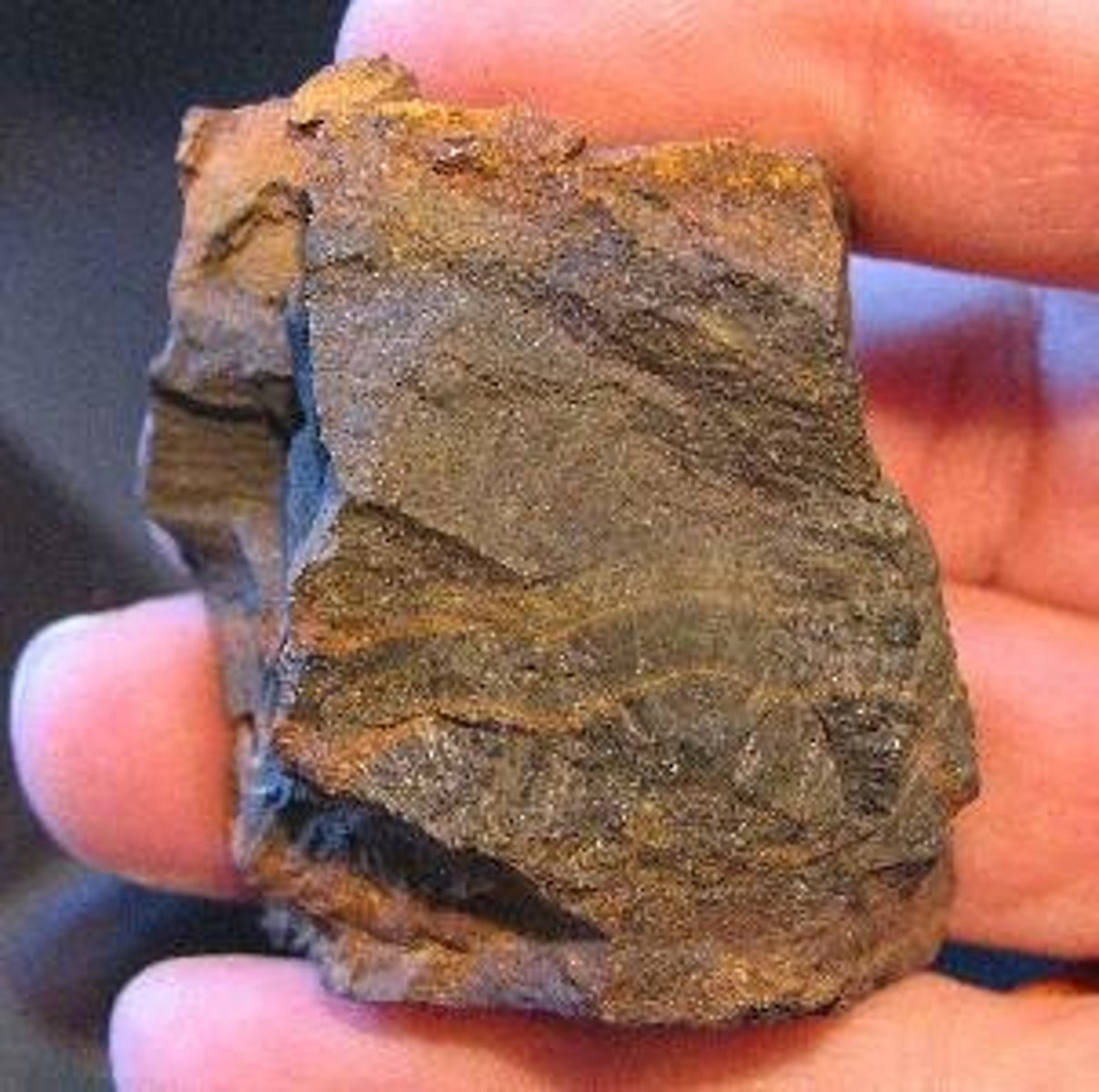
Dolomite
Non Metallic Luster. 3.5 harness. White streak. 2.9 SG. White, grey, pink or brown color, rhombohedral cleavage; subdued effervescence in dilute HCl
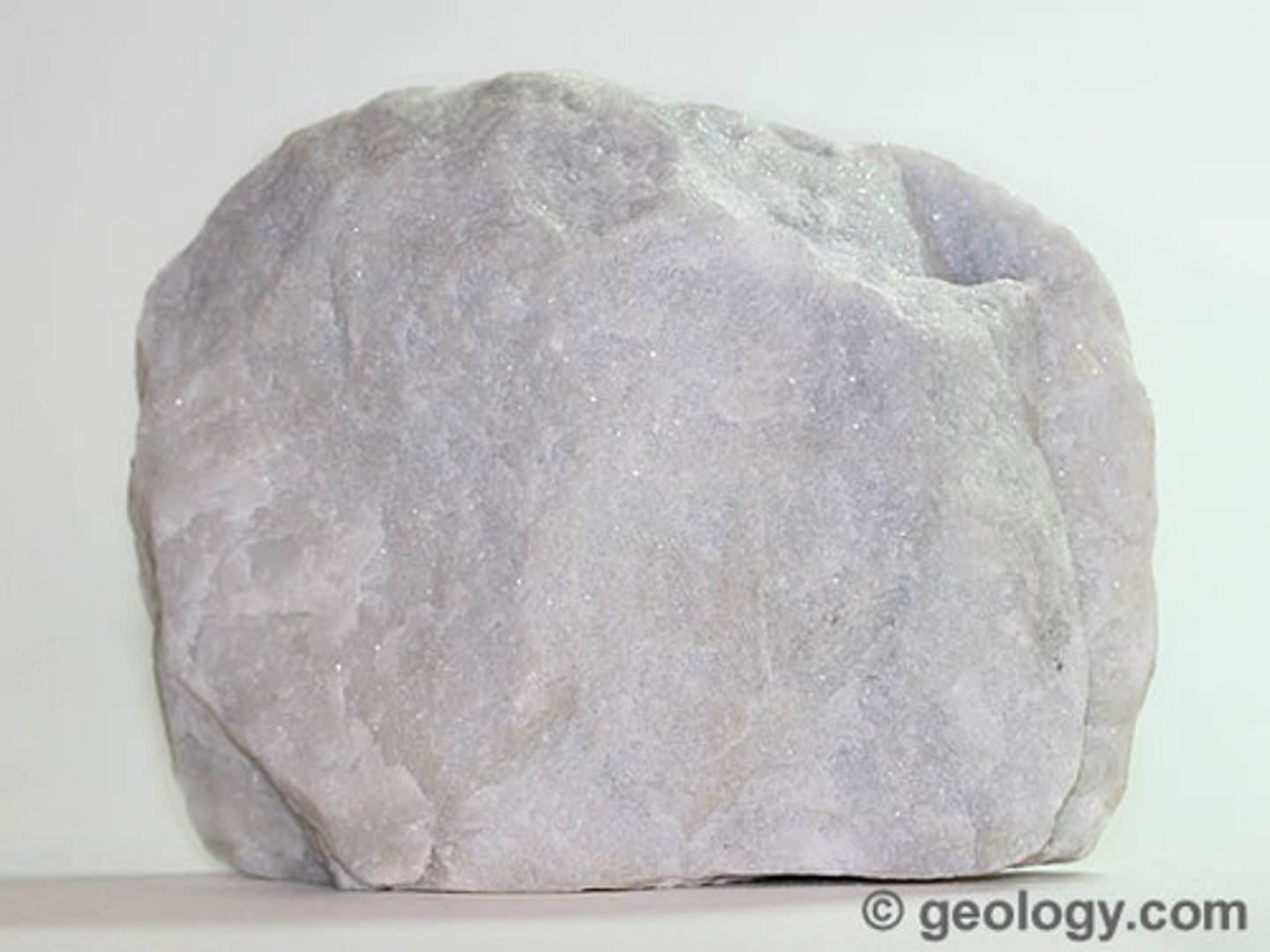
Calcite
Non Metallic Luster. 3.0 hardness. White streak. 2.7 SG. Colorless- white color, transparent to translucent, rhombohedral cleavage, REACTION WITH HCl
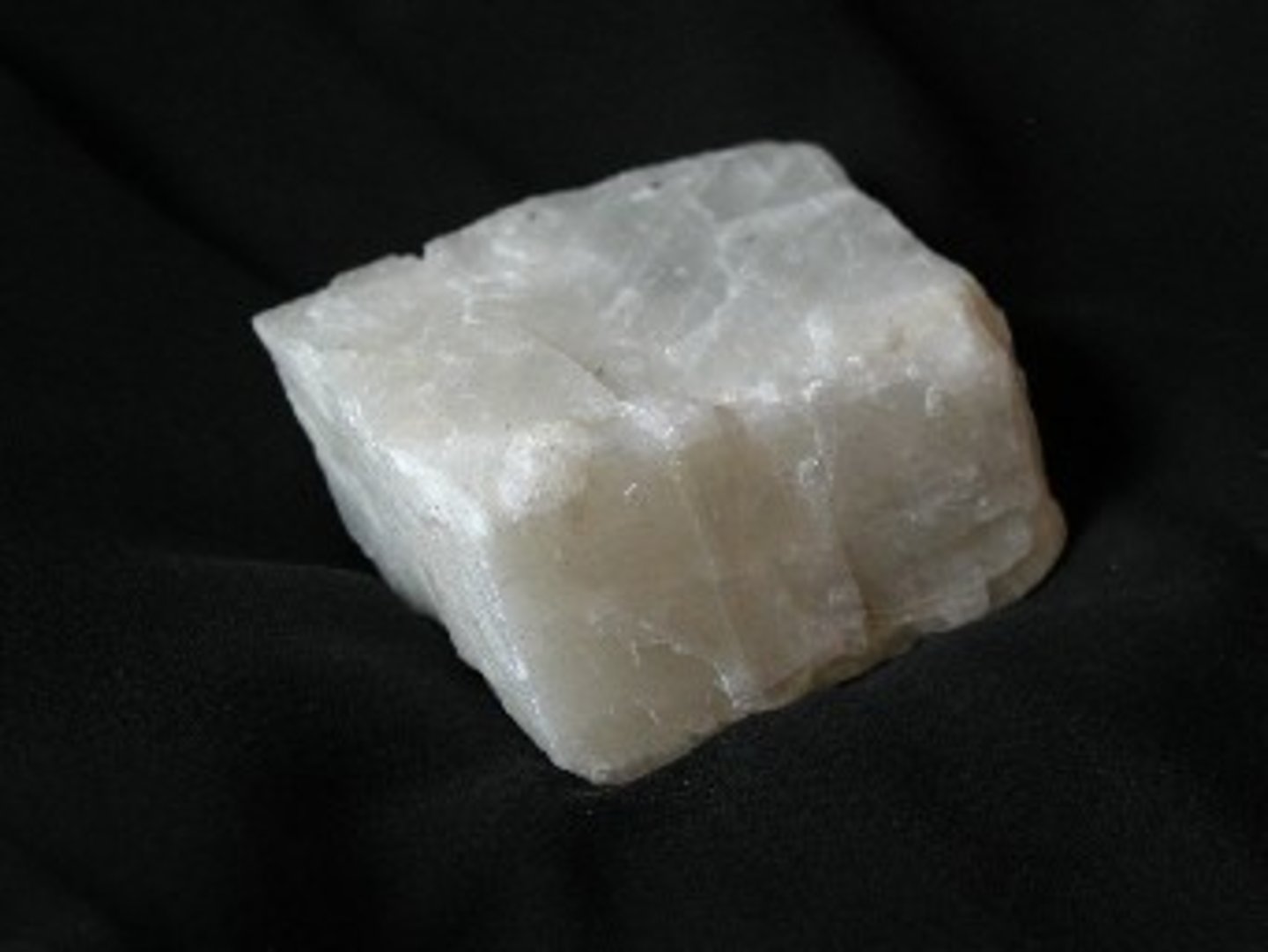
Biotite
Non Metallic Luster. 3-2.5 hardness. Grey-brown streak. 2.8-3 SG. Dark brown to black coloring, one perfect cleavage, elastic thin sheets. Mica family
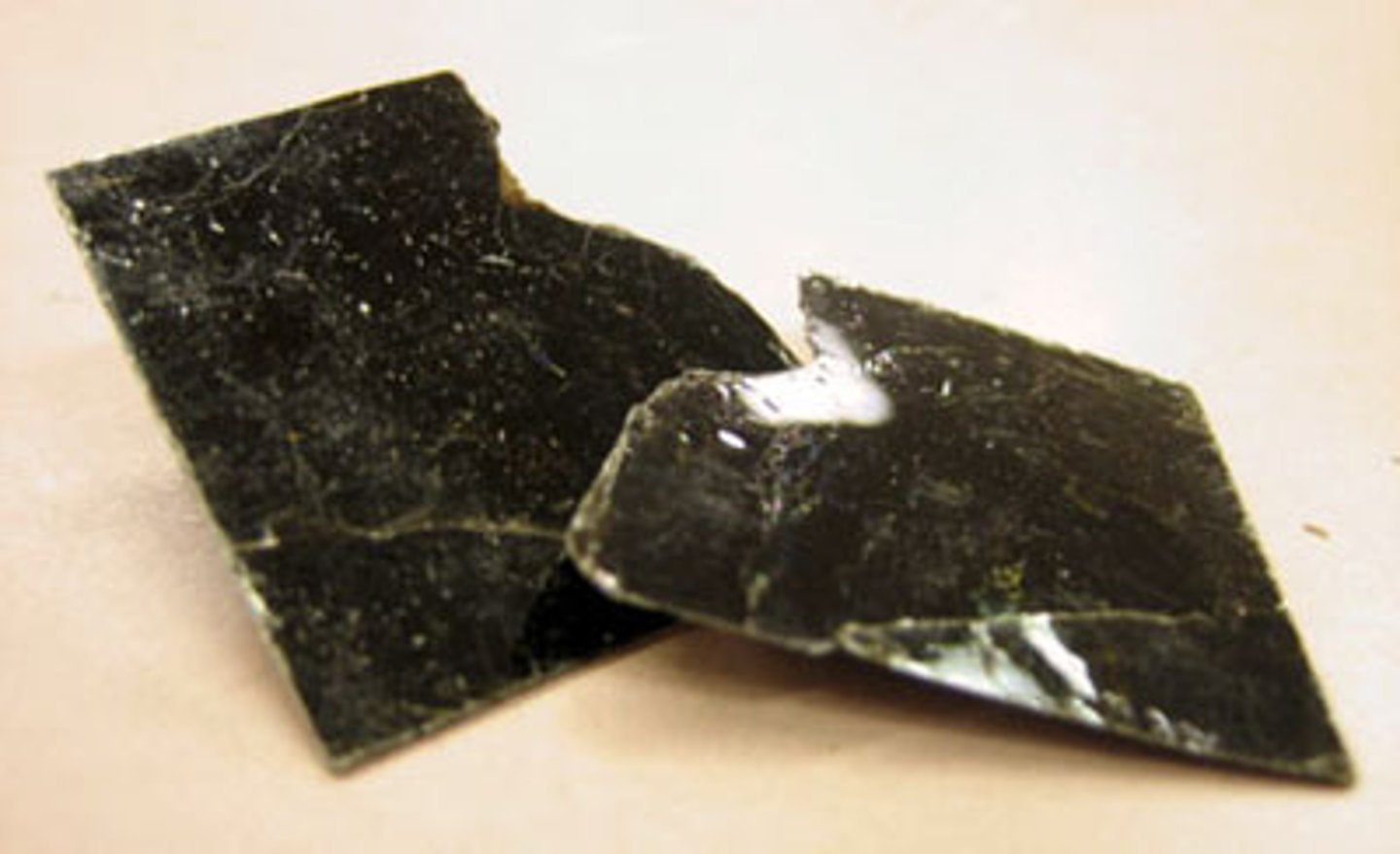
Halite
Non Metallic Luster. 2.5 hardness. White streak. 2.2 SG. Colorless, white, yellow, red, blue, brown color. Cubic crystals and cubic cleavage, SALTY TASTE.
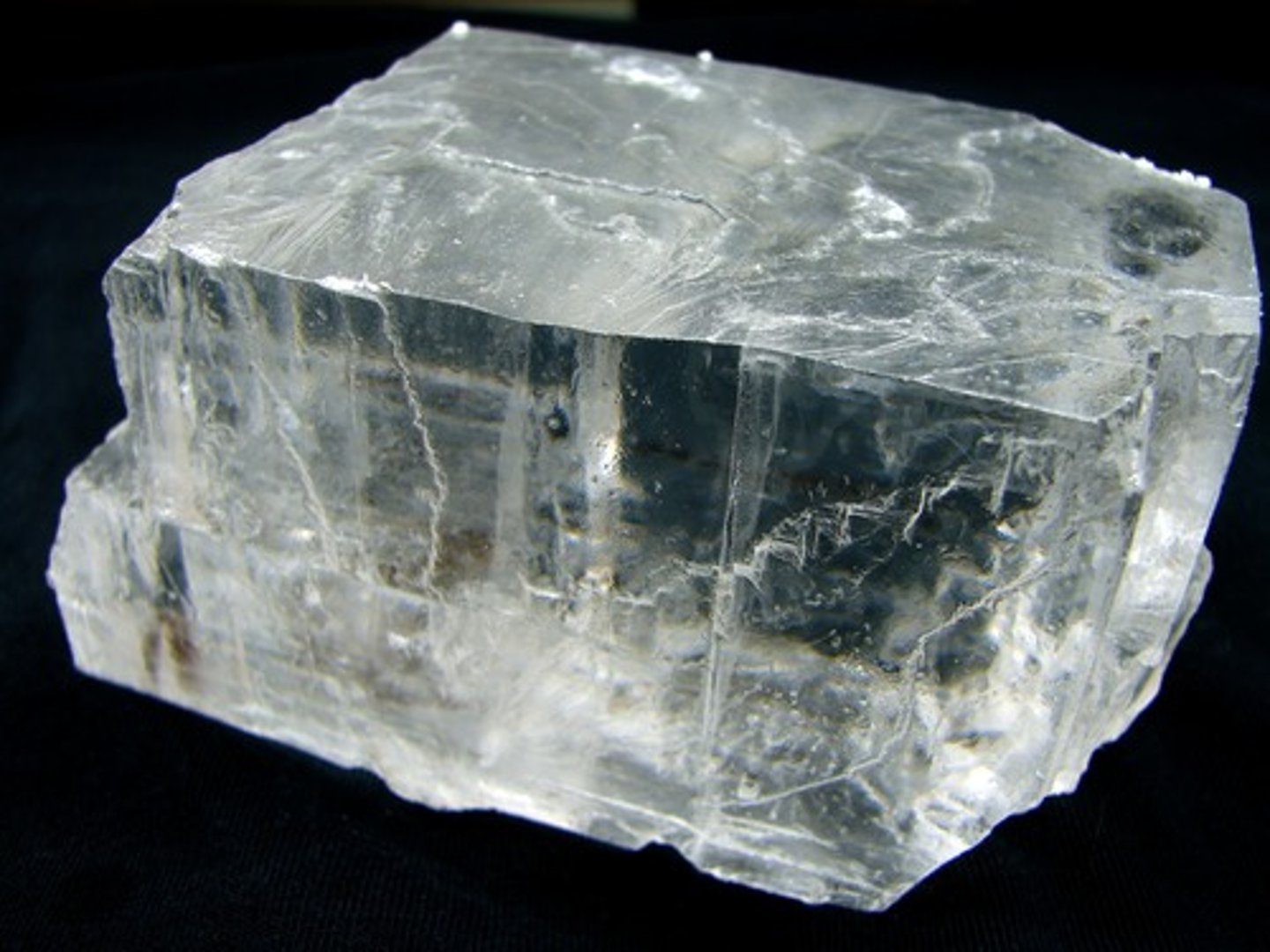
Muscovite
Non Metallic Luster. 2.5-2.0 harness. White streak. 2.7-2.8 SG. Colorless, grey, yellow, brownish color. One perfect cleavage; elastic thin sheets. Mica family
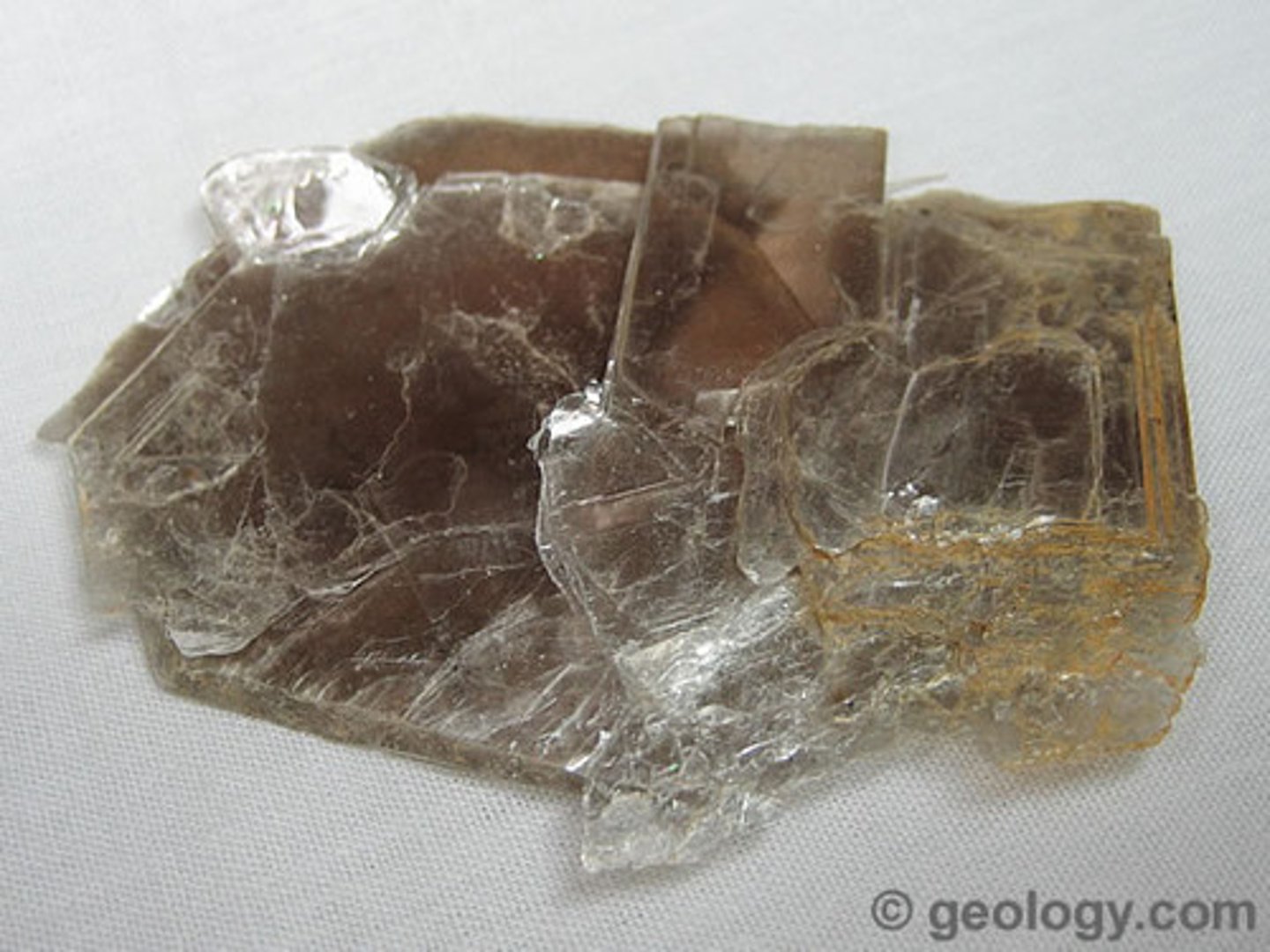
Gypsum
Non Metallic Luster. 2.0 hardness. White streak. 2.3 SG. Colorless, white, may be colored orange by iron oxide; non-greasy feel, colorless sheets, fibrous-silky masses, or massive.
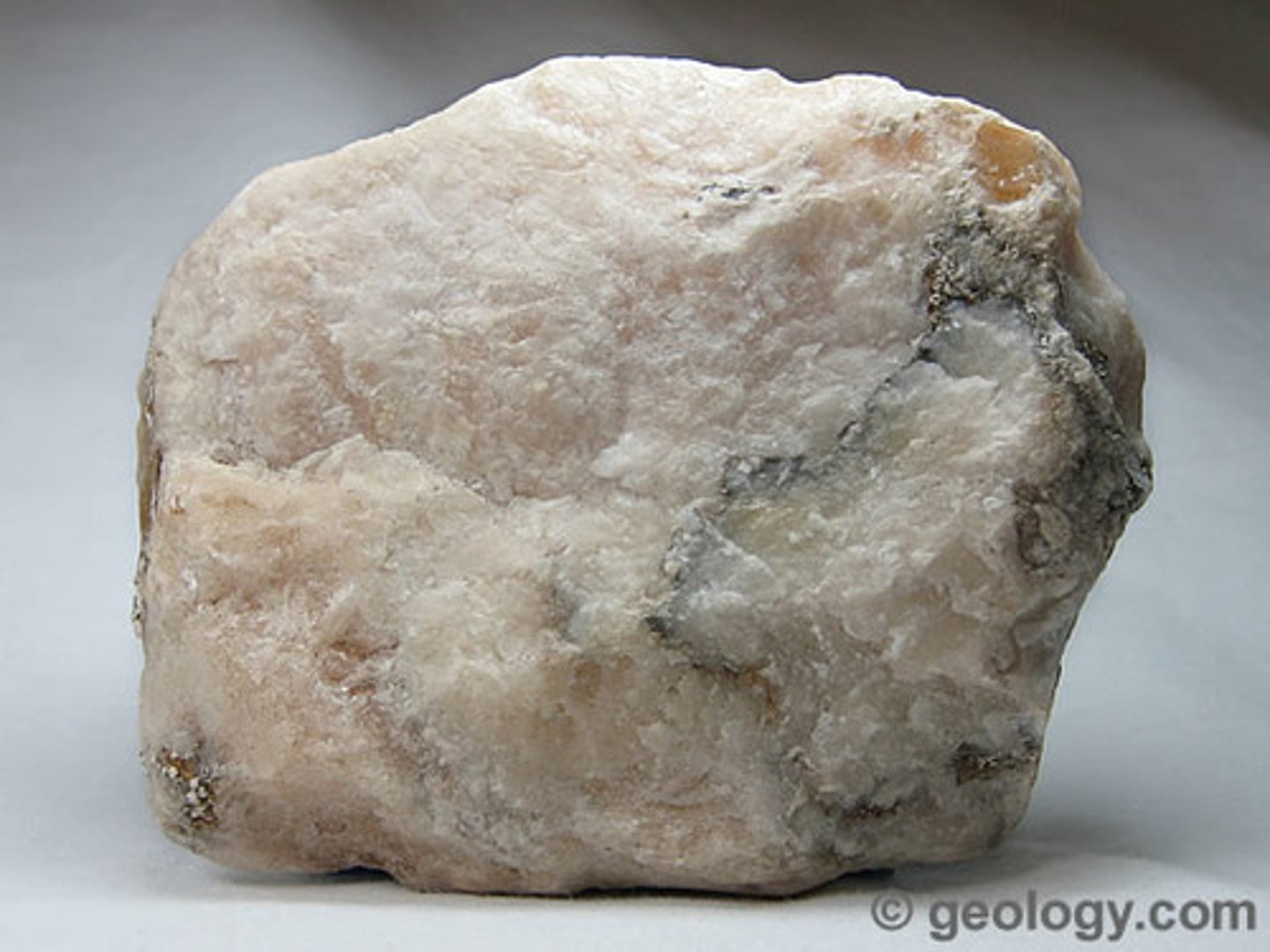
Chlorite
Non Metallic Luster. 2.0 hardness. White streak. 2.6-3.0 SG. Dark green, one perfect cleavage, flexible.
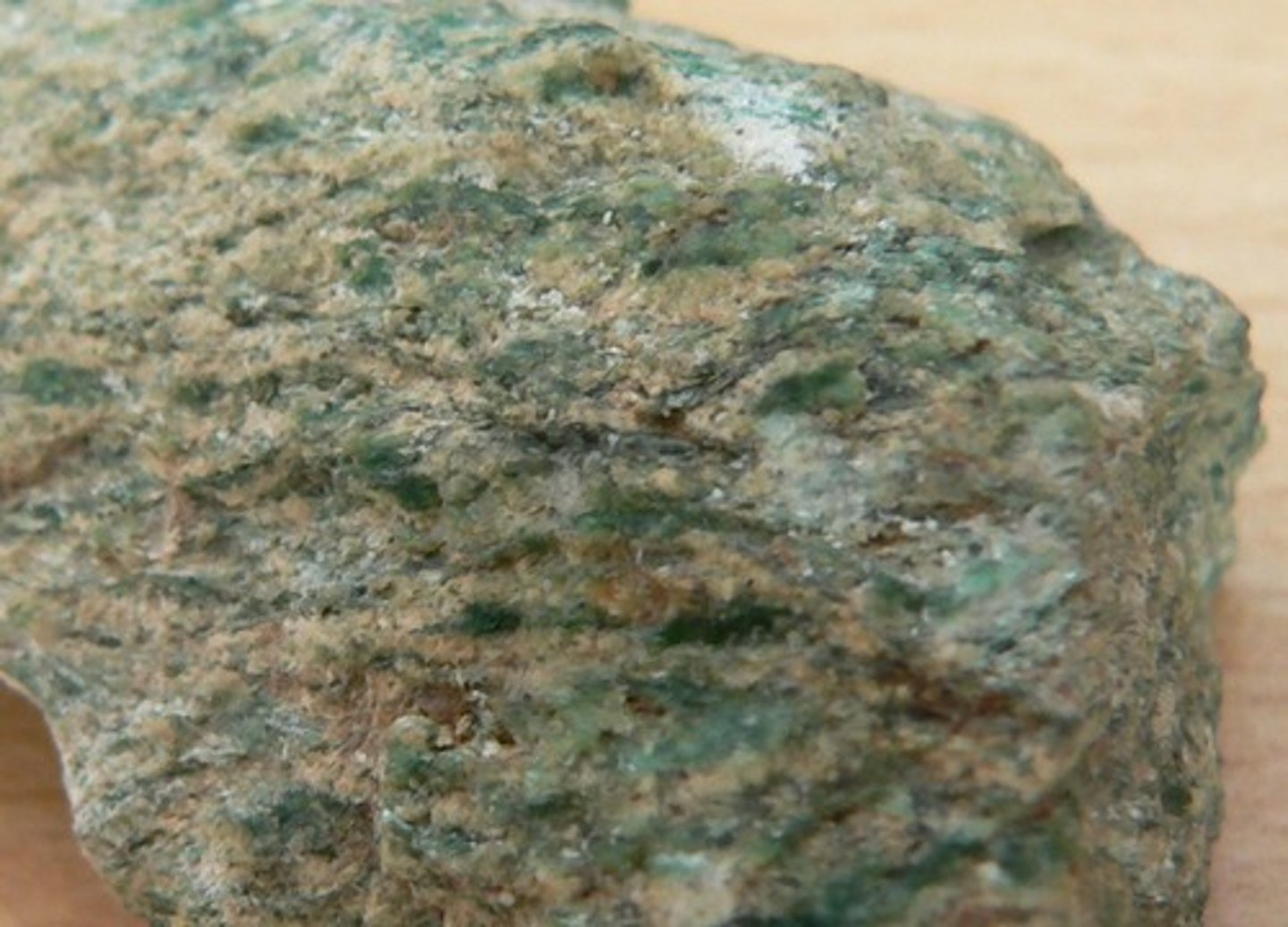
Kaolinite
Non Metallic Luster. 2.0-1.0 harness. White streak. 2.6 SG. White to very light brown color, one perfect cleavage (usually not visible), earthy microcrystalline masses. Powdery
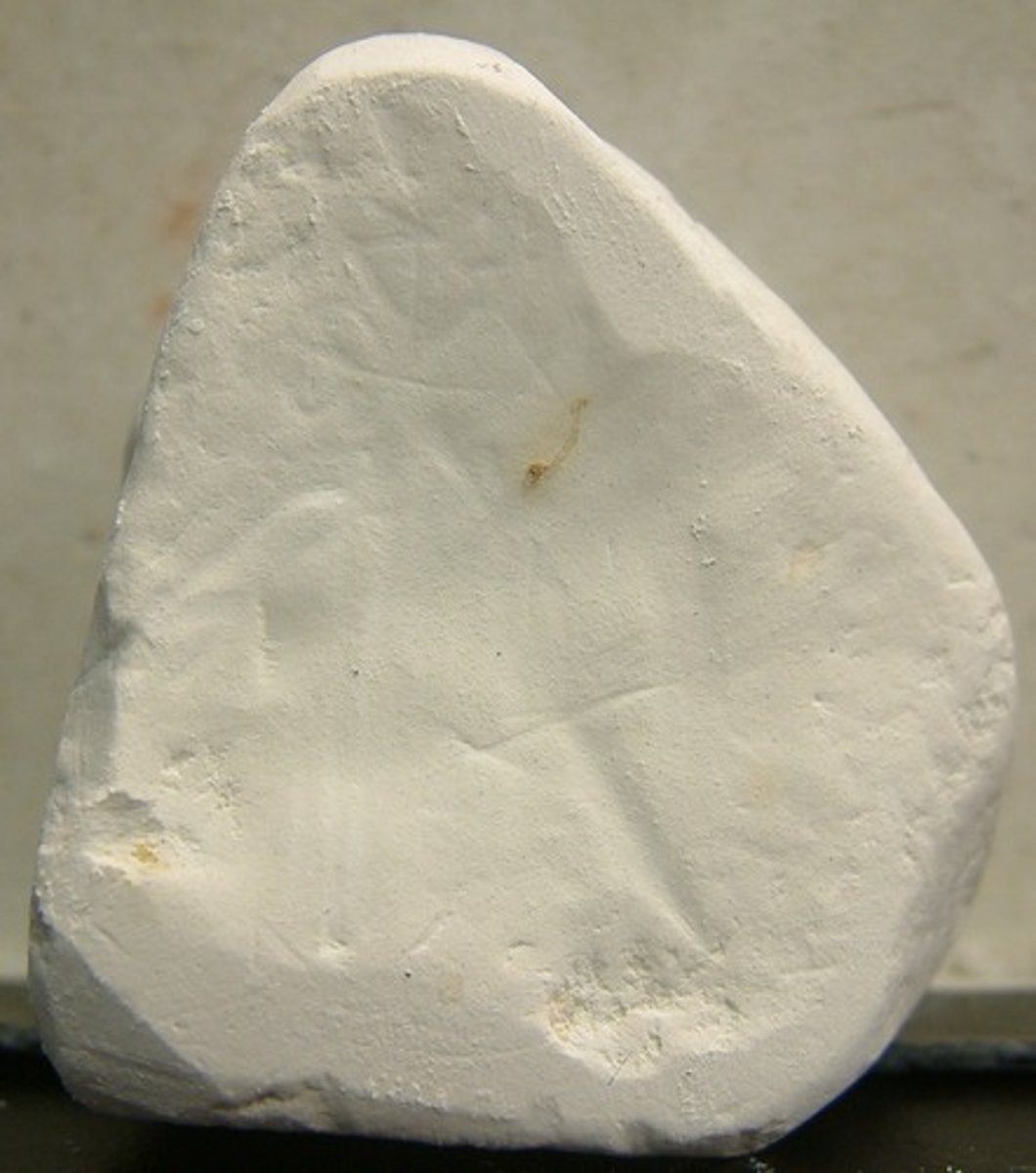
Talc
Non Metallic Luster. 1.0 hardness. White streak. White, yellow, grey, green, pink, brown color. Soapy feel, massive or foliated, waxy to silky to pearly luster.
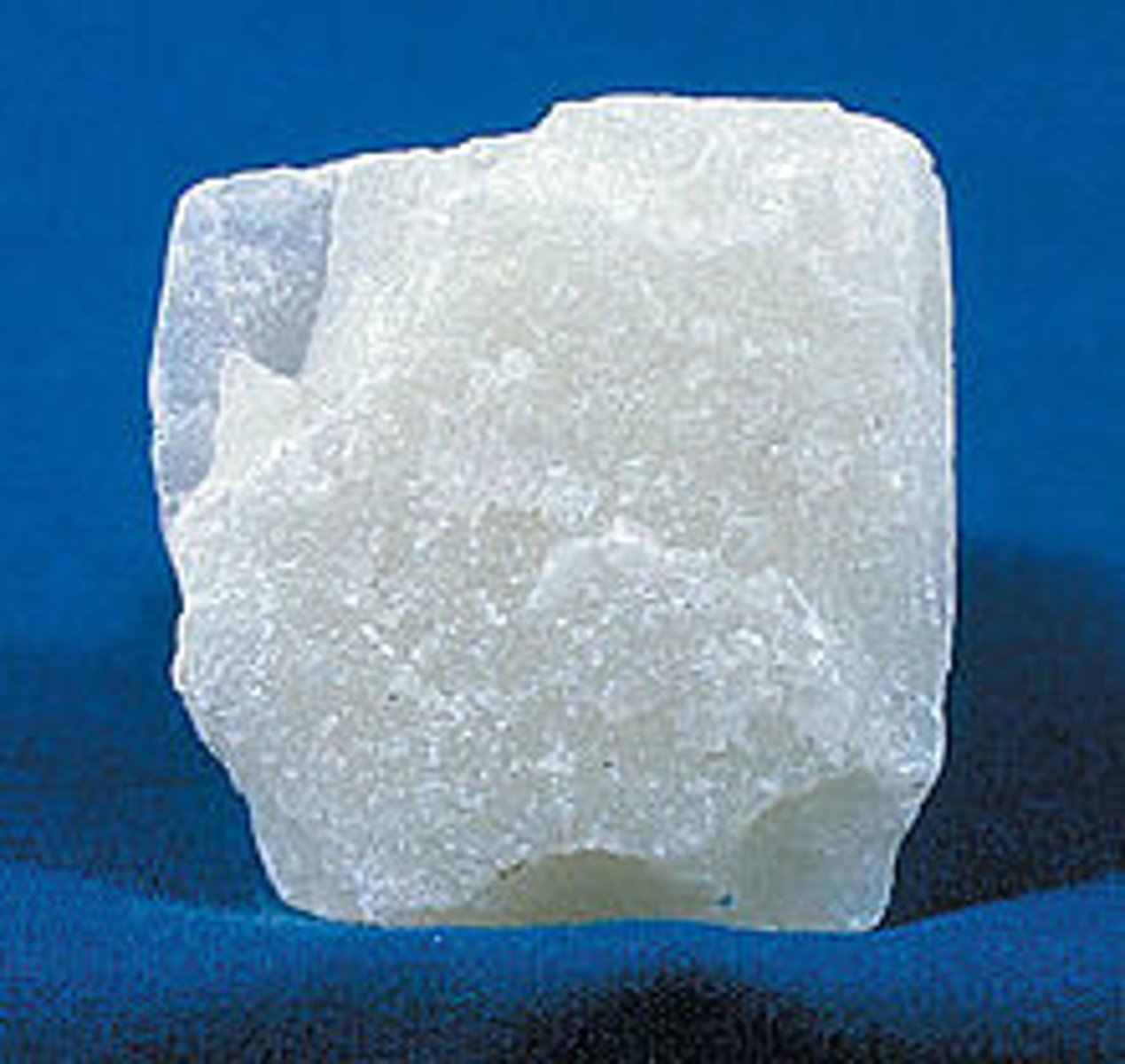
mineral properties (8)
luster
hardness
streak
crystal form
cleavage and fracture
specific gravity
magnetism
effervescence
Mineral Qualifications
-Solid at surface temperature and pressure
-Naturally occuring
-Inorganic, no C=C bonds (double carbon bonds)
-ordered internal structure
-Definite chemical composition
Luster
the way light reflect off of mineral
Metallic
nonmetallic pearly/waxy
nonmetallic dull/earthy
nonmetallic vitreous/glassy
hardness
a minerals resistance to being scratched
comparison items, in order of hardness-
fingernails
penny
window glass
knife blade, masonry nail
unglazed porcelain tile
steel file
streak
color of a mineral powder determined by rubbing sample on streak plate
crystal form
how the crystals form...
large?
small?
close together?
cleavage, definition
the tendency for minerals to break along flat planes of weakness in their atomic structure
cleavage planes (5)
basal
prismatic at 90
prismatic not at 90
cubic
rhombohedral
basal
1 plane of cleavage
prismatic at 90
2 planes of cleavage meet at 90 degrees angles
prismatic not at 90
2 planes of cleavage meet at not 90 degree angles
cubic
3 planes meet at abt 90 degree angles
rhombohedral
3 planes meet at non 90 degree angles
fracture
when minerals break with no smooth flat planes at all
conchoidal
type of fracture that breaks with a curved surface like glass
irregular
type of fracture that breaks with no discernible pattern at all
specific gravity
density of mineral
magnetism
is mineral magnetic?
effervescence
does a mineral react to hydrochloric acid? if it bubbles, it does!
effervescences vigorously
super bubbly effervescence
limited effervescence
when you can hear a reaction, but not see one
The order of Mohs' hardness scale, from 1 to 10 (mnemonic)
True Geologists Climb Faults And Observe Quarries To Contemplate Deformation
Talc, Gypsum, Calcite, Fluorite, Apatite, Orthoclase feldspar, Quartz, Topaz, Corundum, Diamond
The order of the oldest geologic era to the most recent.
Pretty Polly Makes Cookies
Precambrian, Paleozoic, Mesozoic, Cenozoic
